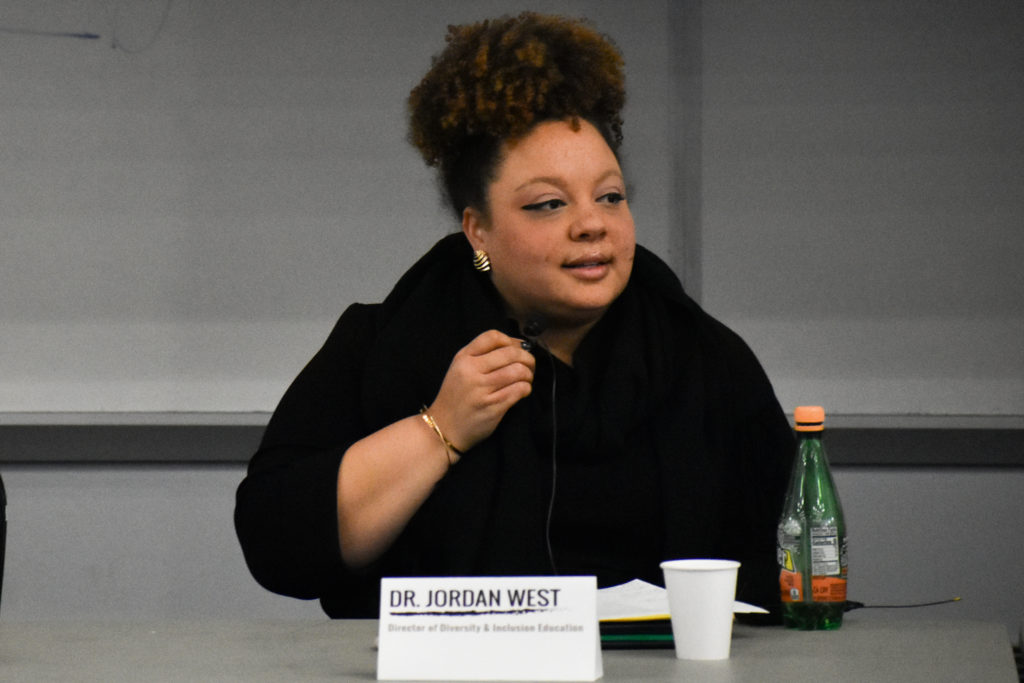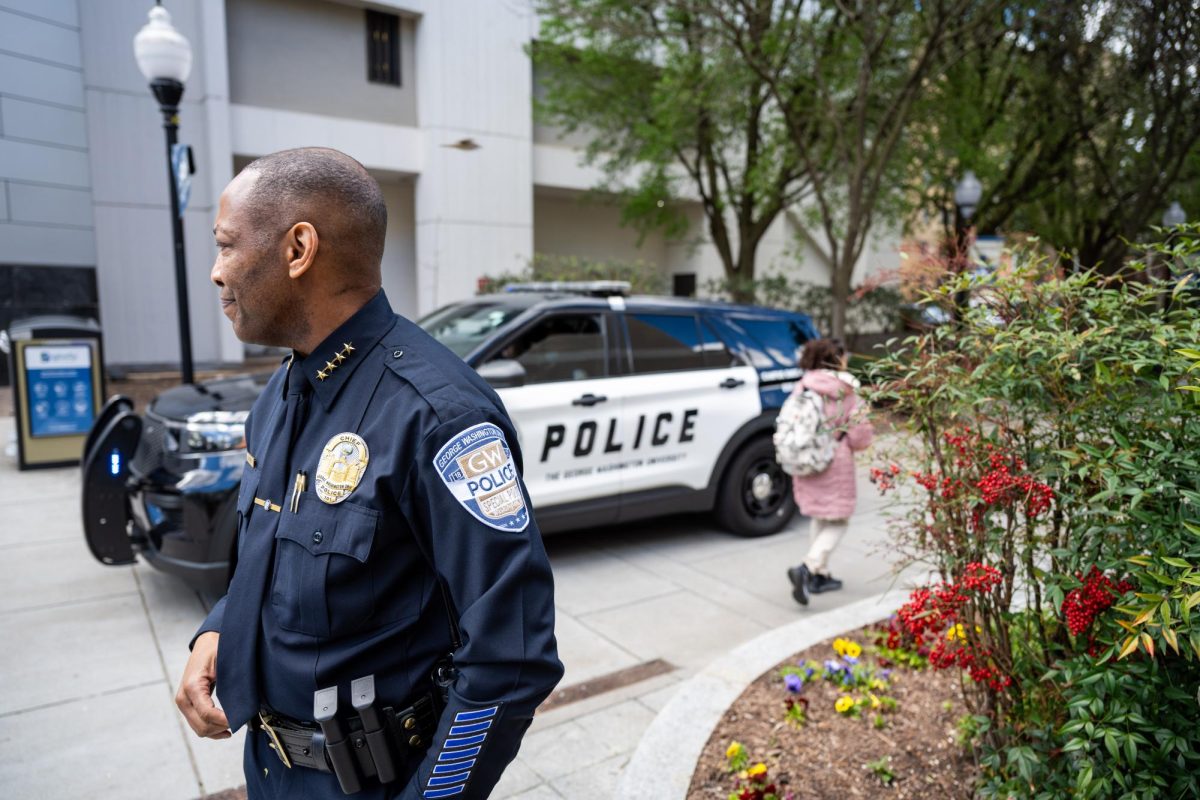Updated: Jan. 23, 2020 at 1:28 p.m.
A panel of students and experts discussed how colonialism affects students’ lives on campus at Funger Hall Tuesday.
Panelists shared their experiences with discrimination at GW and talked about how officials have acknowledged or refused to acknowledge, the ties between the University and colonialism. About 30 people attended the event, which was hosted by the Anything But Colonials Coalition as part of the Multicultural Student Services Center’s annual King Week.
Jordan West, the director of diversity and inclusion education, said understanding the University’s history and association with colonialism will aid in the process of decolonizing campus, which she defined as changing the campus climate so all members of GW’s community feel comfortable and represented.
“When I think of colonialism, I think of stealing, theft, a lack of apology, dehumanizing and stripping folks,” West said. “I think of people who once had who no longer have, and the challenge is to go back and find their identities.”
She said officials at institutions of higher education need to make a conscious effort to remedy the legacies left by colonialism at their universities. She added that officials at GW are making an effort to hire new faculty who have “complex, layered backgrounds” that they can talk about in their courses.
“You have to recognize that you have been colonized – it is important to know the work you have to do at an individual level to decolonize,” West said. “That is an exhausting process because it is unlearning everything you have been taught.”
Elizabeth Rule, the assistant director of the AT&T Center for Indigenous Politics and Policy in GW’s College of Professional Studies, said GW community members should learn about and understand the historical ties between indigenous communities and the University. She said she is looking forward to seeing higher education institutions take “concrete, material next steps” to provide greater indigenous representation and support indigenous students.
“If we look throughout the world, there are many instances where countries have decolonized, made themselves anew – that is not the history of what we now call the United States,” Rule said. “Settler colonialism, as the famous saying goes, is a structure, not an event. It is not something that just happened and we moved on from, it’s something that has shaped our daily lives.”
Georgie Britcher, a sophomore studying international affairs, opened the event by acknowledging the Piscataway and Nacotchtank tribes, who historically inhabited the land the University now stands on. She said she has needed to clarify to professors who have made insensitive remarks, like a history professor who used the terms “American Indian” and “Indian” to describe indigenous individuals, even after Britcher brought the issue to his attention.
“People should not have to hide who they are at this campus, but I find myself not being able to do,” Britcher said.
Breya Johnson, a graduate student studying women gender and sexuality studies, said the lack of diversity among GW’s administrators is evidence of the legacy of colonialism at the University. She referenced a budget cut that led to her losing her graduate assistant scholarship as an example of how colonialism affects the present.
“There was no one up top to think how are students of color, poor students, first-generation college students going to get by if we make this one budget cut?” Johnson said. “And that’s what I think of when I think about how colonialism impacts our daily education. It’s people who get to make decisions about what to take with no regard about who it impacts.”
This post was updated to correct the following:
The Hatchet incorrectly reported the spelling of two indigenous tribes. The spelling is now correct. The Hatchet also incorrectly reported Breya Johnson’s major. Her major has been corrected. We also updated a paraphrase from Georgie Britcher and omitted context about a 1995 U.S. Census Bureau report, as it did not relate to the discussion of the event. We regret these errors.





